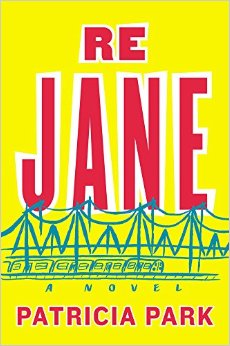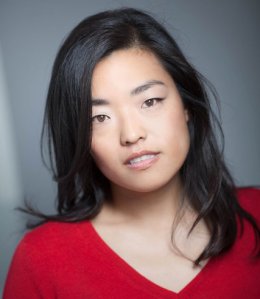 I am mad about the Brontes. I have reread three of Charlotte’s novels this year, but I’ve put off Jane Eyre. I wondered if I should give it a miss since I know it so well.
I am mad about the Brontes. I have reread three of Charlotte’s novels this year, but I’ve put off Jane Eyre. I wondered if I should give it a miss since I know it so well.
Fortunately, Patricia Park’s witty first novel, Re Jane, a Korean-American version of Jane Eyre, has sent me back to my Charlotte Bronte roots.
Park’s lively retelling of Bronte’s classic is utterly engrossing. The Korean-American narrator, Jane Re, an orphan raised by her Korean uncle and aunt in Flushing, Queens, is stuck working at the family grocery store after college graduation. She had a job lined up at Lowood Capital Partners, but it was rescinded after the CEO was accused of insider trading and a hiring freeze was declared. She still lives in the Korean neighborhood where she grew up, while her peers are on the fast track out.
Although the neighborhood is what Jane calls “all Korean all the time,” the inhabitants are still outsiders in New York. They have problems speaking English. Jane humorously tells us,
Flushing. The irony was that none of its residents could pronounce the name of their adopted hometown; the Korean language lacked certain English consonants and clusters. The letter F was assimilated to an H or a P. The adults at church would go Hoo before they could form the word, as if cooling it off their tongue. My uncle and aunt’s rendition: Poo-Rushing. It could’ve been poetry.
And Jane is an outsider, because her father was an American and she is tall. But she doesn’t complain about her problems, because whining is not part of Korean culture. She is also held back by “the power of nunchi.” There is no English equivalent, but she explains, “It was the ability to read a situation and anticipate how you were expected to behave. It was filling your elder’s water glass first, before reaching for your own.”
She has a lot in common with Bronte’s orphan, Jane Eyre, though Jane Eyre’s aunt was crueller than the modern Jane’s uncle. If you have never read Jane Eyre, you should know: she becomes a governess after graduation from Lowood school, a charity school, and then falls in love with her boss, Mr. Rochester. She discovers Mr. Rochester has a mad wife in the attic, and leaves. Jane Re’s life follows a similar pattern. Tired of her unkind uncle’s put-downs, she takes a job as a nanny in Brooklyn. Her charge, Devon, is the adopted Chinese daughter of Beth Mazer, an eccentric Women’s Studies professor, and Ed Farley, her hunky younger husband, a high school English teacher. Naturally, Ed and Jane bond over late-night sub sandwiches in the kitchen. Naturally the feminist Beth is the mad woman in the attic.
The satirizing of feminists is an American tradition: think of Henry James’ Olive Chancellor in The Bostonians and Jenny in John Irving’s The World According to Garp. Park’s satire of Beth is sharp but it has a twist: she makes her likable. To Jane, a young woman who knows nothing about feminism, Beth seems ridiculous : she doesn’t shave her armpits, calls adoption an “alternative birth plan,”eats only organic food, and has written a family rulebook/history called The Mazer-Farley Household: A Primer. Beth literally has an office in the attic and is a bit mad, but she is also genuinely kind and concerned when she observes the dynamics of the relationship between Jane and her uncle. Beth thinks a women’s studies course could help Jane. She lends Jane a book called The Feminist Primer: A Constructive Critique of the Feminist Movement. Jane and her friend Nina, another nanny, giggle over it.
Even though Jane thinks Beth is mad, she is not a bad girl. She flees from Ed/Mr. Rochester to Korea just before 9 /11. She stays in Seoul with an aunt, teaches in an English school, and devotes most of her time to clothes and makeup. When Nina visits her in Korea, she doesn’t care for the new Barbie doll Jane. Where does Jane belong? Who is she?
I won’t tell you what happens. All I can say is that it is thoroughly enjoyable and well-written! I loved it.


Sounds like a clever take on Jane Eyre – and alarming that a traditional feminist would be considered mad by modern standards….!
LikeLike
Yes, Park does very odd things in her characteristic of the feminist. But Jane learns a lot from her!
LikeLiked by 1 person
Oops! I meant “characterization!”
LikeLike
I’ve been thinking about offering a Jane Eyre trio for next year’s Summer School, comprising ‘Jane Eyre’, ‘Wild Sargasso Sea’ and ‘The Eyre Affair’. This is another one that would fit the bill. I might put it in instead of ‘Jane Eyre’ itself because I think everyone who comes will know that book well enough not to re-read it.
LikeLike
What a wonderful class! I would certainly enroll. Re Jane is very good. A great idea to link those very different Bronte-inspired novels. (Which reminds me: I am way behind on Fforde’s books. I may have read the sequel to The Eyre Affair, and then forgot about him. Why, why, why did I ever weed that book?)
LikeLike
Is that the one with the Unitary Authority of Warrington Cat? I suspect you have to have lived through the horror that was the redrawing of local authority boundaries to really understand that joke but I thought it was superb.
LikeLike
Uhh…Maybe? (I read it some years ago.) Did love all the literary references, though.
LikeLike